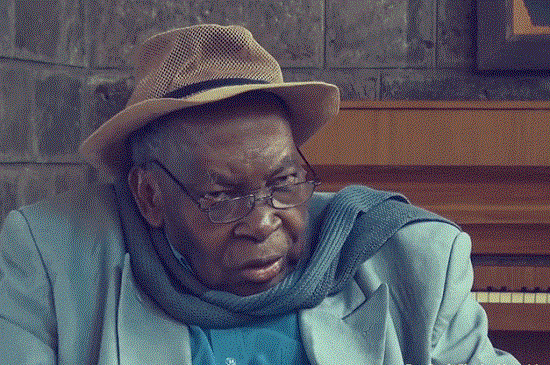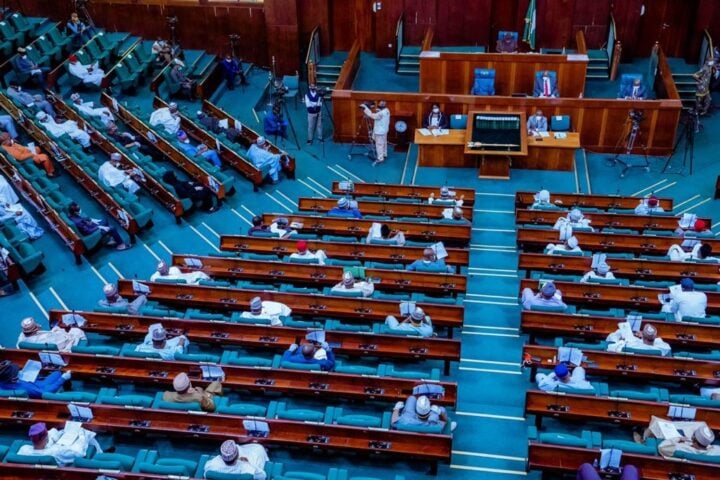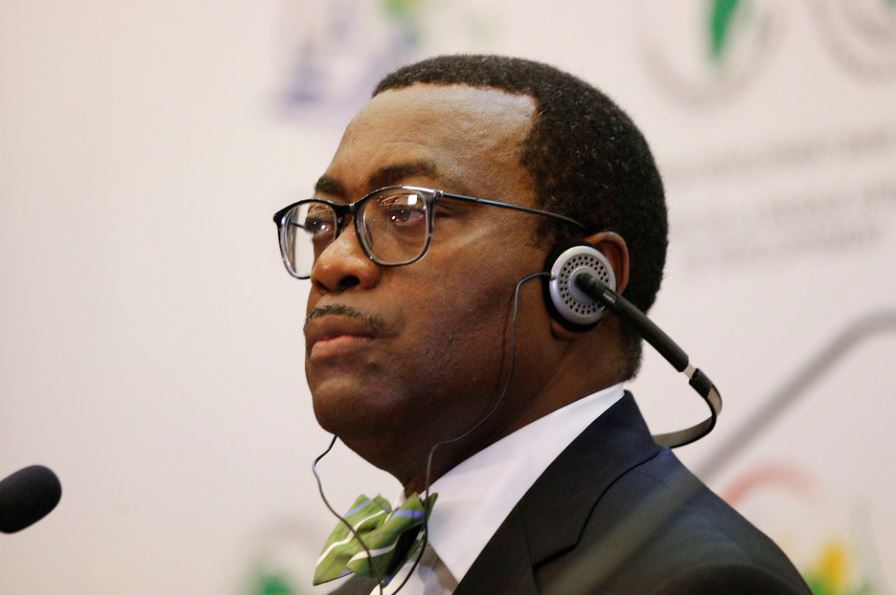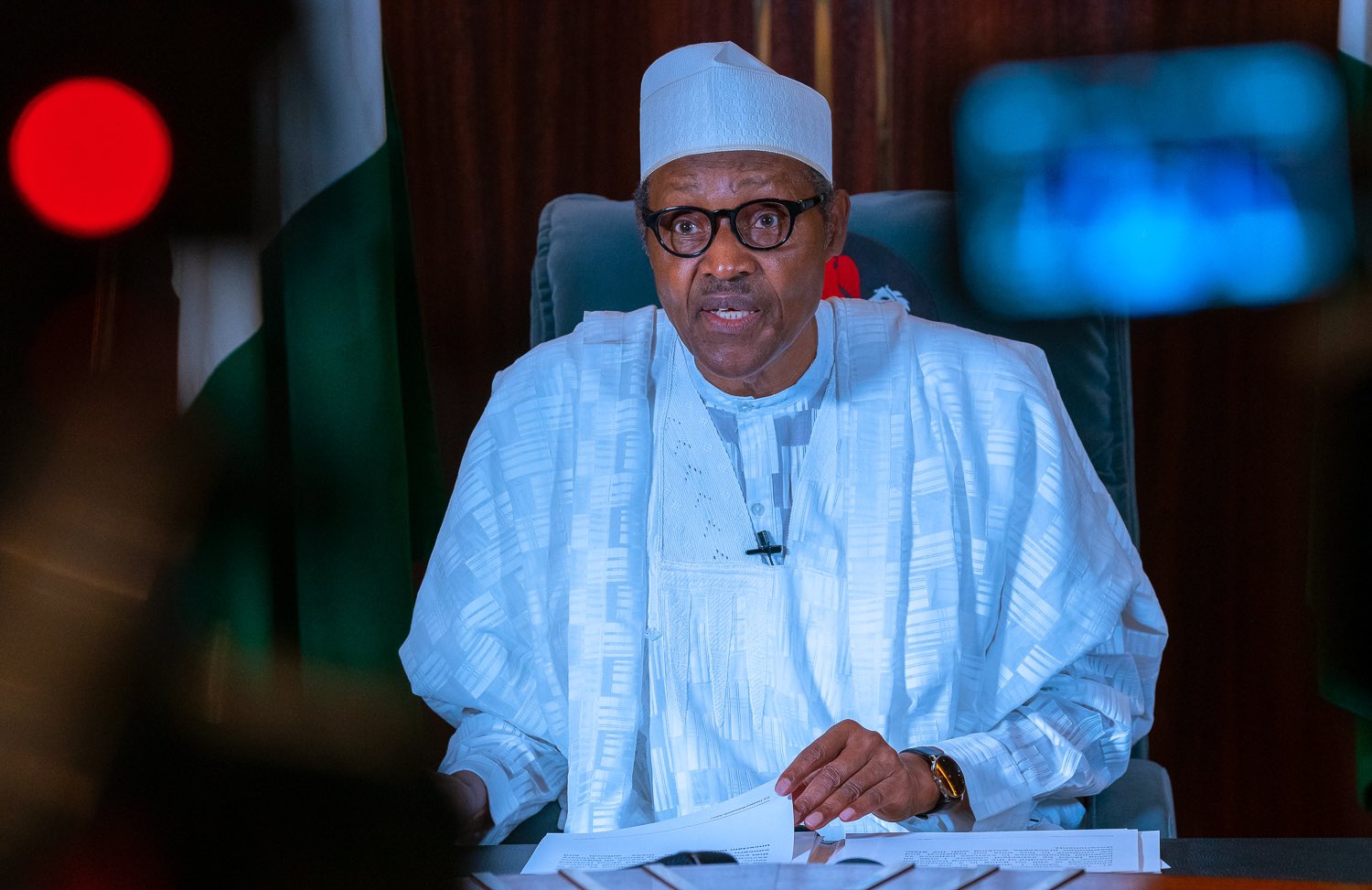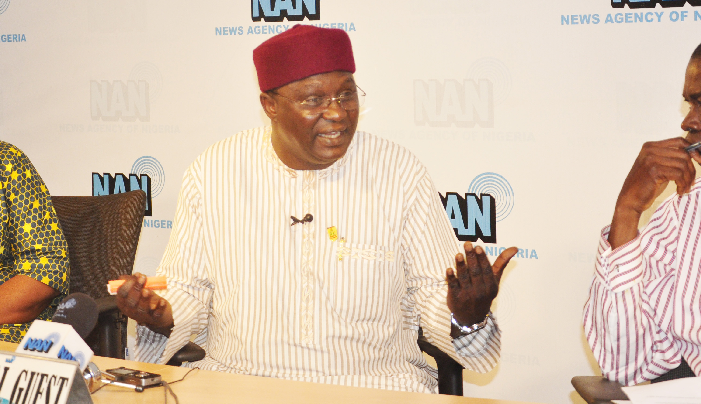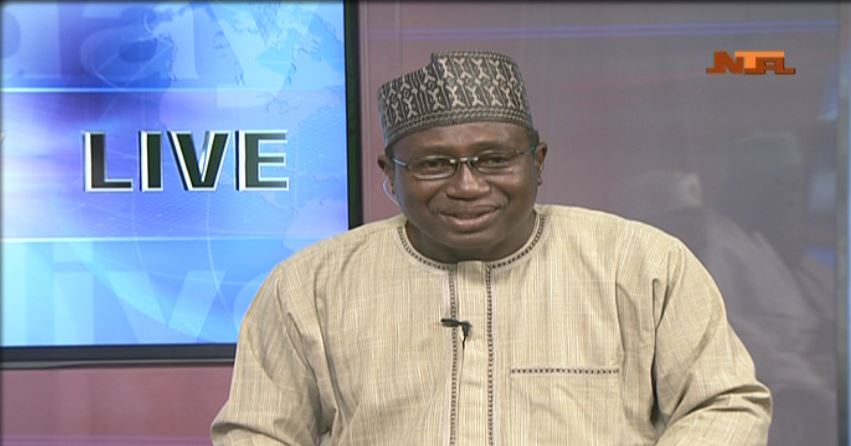BY FRANCIS ANEKWE OBORJI
We begin this tribute in honour of Prof. Charles Nyamiti, with the following obituary announcement of his demise. Originally written in Swahili, the obituary announcement was published at the website homepage of the Catholic University of Eastern Africa (CUEA), Nairobi, Kenya, on May 20, 2020, a day after Nyamiti’s demise in his country home of Tanzania:
“His Excellency Paul Ruzoka of the Catholic Archdiocese of Tabora is announcing the death of FATHER CHARLES NYAMITI that happened on 19/05/2020 at 5.00 am at the hospital of St. Anna, Ipili – Tabora. The funeral of our Grandfather Professor Fr. Charles Nyamiti is expected to take place on Thursday, 21/05/2020 at 10.00 am at the cemetery of the Archdiocese in Itaga. Information may reach to the Priesthood Community in Tabora and wherever they are, to Religious, relatives and all friends wherever they are.”
Signed by Archbishop Paul Ruzoka of the Catholic Archdiocese of Tabora, Tanzania, Nyamiti’s bishop, the above is our English translation of the obituary announcement. Nyamiti had spent most of his career as university professor and scholar at CUEA in Nairobi since 1983 until 2019, when he returned to his home Archdiocese of Tabora, Tanzania, where he died on May 19, 2020.
Advertisement
Today, Africa mourns the legendary Rev. Prof. Fr. Charles Nyamiti, the Vibrant Pioneer of Inculturated African Christian theology and a founding scholar of the Catholic University of Eastern Africa (CUEA). Called to the glory of heaven at the early hours of May 19, 2020 in his country home of Tanzania, the remains of this great pioneer African theologian and first-class scholar of the first hour, were laid to rest on Thursday, May 21, 2020, in his home Archdiocese of Tabora, Tanzania, after the funeral mass at the Cathedral.
His writings were a great seminal contribution leading to the global recognition of what we call today African Christology and African Christian theology in general, in theological education. Nyamiti is indisputably, a central figure among the pioneer African theologians. His writings have helped to restore the dignity of African people, rehabilitate the long scorned African religious and cultural heritage into making it an indispensable source for an authentic African Christian theology in theological sciences of our time.
Today, it is no longer a ‘taboo’, so to say, to speak, discuss or write about African theology and Christology in theological faculties across the globe, thanks to the pioneering efforts of Charles Nyamiti and few others of his generation of African theologians. This is something unthinkable until recent times in many universities and faculties of theology in the Western world and elsewhere, including Africa itself, where the local churches are still under heavy monitoring influence of the mother churches from the Western Hemisphere.
Advertisement
Thanks to the pioneering works of such figures like Charles Nyamiti, today, many students of theology, Africans and non-Africans alike, can freely discuss or write their licentiate and doctoral dissertations on themes of African theology as well as on the thoughts of pioneer African theologians such as Charles Nyamiti. This author during his student days in the University, was and is still one of the beneficiaries of the pioneering works of African scholars of Nyamiti’s generation.
BIOGRAPHICAL NOTE
Charles Nyamiti was born in 1931, among three brothers and four sisters, to Christian parents, Theophilus Chambi Chambigulu and Helen Nyasolo (both late), belonging to the Wanyamwezi of Tanzania. Nyamiti’s great interest in blending his Christian faith with African worldview through theological reflection must have been as a result of cultural socialization his parents helped him to receive growing up in the Wanyamwezi culture and philosophy of Tanzania.
After the usual primary and high school education, Nyamiti studied for the Priesthood at the prestigious Kipalapala Major Seminary in Tabora, Tanzania, where he acquired his philosophical and theological formation. By then, the emphasis in philosophy was Thomastic Philosophy. This was to have tremendous influence on him as a huge part of his published literature manifest a great deal of dependent on Thomastic methodology of metaphysical and theological investigations and reflections.
Advertisement
Ordained a Catholic priest in 1962, Nyamiti was sent, from 1963 to 1969 to Louvain University in Belgium where he graduated with PhD in Systematic/Dogmatic Theology and a Certificate in Music Theory and Piano. From Louvain he was sent to Vienna where he studied Cultural Anthropology and Music Composition graduating with another PhD and Licentiate respectively.
On return to Tanzania after his studies in Rome, Nyamiti was from 1976 to 1981, a Professor at his alma mater, Kipalapala Major Seminary during which he served as a co-worker in some neighbouring parishes. However, in 1983, Nyamiti moved to Nairobi to found what is today CUEA where he continued to serve even after retirement, till 2019 when returned to his home Archdiocese of Tabora, Tanzania.
As a university professor and solid theologian, Nyamiti was a global scholar, always in high demand and sought for throughout the academic world. For over ten years, he was consultor to the Vatican Pontifical Council for Interreligious Dialogue; a co-editor of the “African Christian Studies”; founding member of the Ecumenical Theological Symposium of Scholars from Eastern Africa, and of the Ecumenical Association of Third World Theologians (EATWOT). He was a resource person for the Special Assembly for Africa of the Synod of Bishops.
The academic and scholarly input of Prof. Nyamiti, apart from his numerous publications, is also evident through the students he inspired, mentored, moulded and formed. Since his theological perspective and methodology are African-oriented and specifically rooted in African worldview and Christianity, Nyamiti inspired and influenced many young minds into theologizing and philosophizing within the African context and perspective.
Advertisement
Among the many people who published or wrote their doctoral theses on Nyamiti’s works is the Finnish scholar, Mika Vahakanga, and the Lutheran called Stephen I. Munga who published a book on Nyamiti as champion in inculturation trend and Mana Buthelezi as expert in liberational perspectives. This is in addition to a good number of other students in Africa, Europe, Americas, and Asia, who wrote and have continued to write their Licentiate and Doctorate Dissertations on the theology of Nyamiti.
NYAMITI’S THEOLOGICAL VISION
Advertisement
Patrick N. Wachege, Nyamiti’s biographer gives the following summary of Nyamiti’s theological vision:
“His (Nyamiti’s) vision for African theology is the realization of African theology of reconstruction. A kind of African theology which will authentically and scientifically marry the inculturation approach with the orientation of liberation theology adhering strictly to orthodoxy and relevance to our changing society and new economic, political and cultural realities. He would wish to be remembered most in this realization, through the students who have successfully passed through him and in his published works.” (See P.N. Wachege, “CHARLES NYAMITI: Vibrant Pioneer of Inculturated African Theology”, in B. Bujo – J. Ilunga Muya (eds.), African Theology: The Contribution of the Pioneers, Vol.2, Paulines Publication, Nairobi 2006, pp. 149-162).
Advertisement
Nyamiti’s outstanding works reveals his theological methodology to be metaphysical, speculative, systematic, and in some cases, abstract in deductive sense. Another thing is his option for publishing more of articles than books, thus having only few major monographs and many published articles, too numerous to mention – some of which are “books” by themselves – to his credit. Internationally renowned scholars like Karl Rahner have the same option, a fact, which made Rahner come up with twenty precious volumes of combined articles titled “Theological Investigations.”
In fact, we look forward to that day CUEA will collect and publish Nyamiti’s numerous articles into volumes of an ‘African Inculturated Theological Inquiry.’ CUEA owes that to Nyamiti, Africa and the global academic community. Nyamiti in his theological endeavour shares a lot in common with Karl Rahner. Like Rahner, Nyamiti was a very hardworking, bold, extremely studious, deeply Catholic and orthodox scholar. Like some of other genuine creative theologians, he was however, suspected and somehow misunderstood at the critical stage of the development of his methodology for African theology. But he never gave up. He remained authentically African as well as deeply Catholic and orthodox. In all these, however, he never tolerated nonsense in his search for knowledge and truth, standing by these always.
Advertisement
TRENDS IN NYAMITI’S AFRICAN THEOLOGY
Nyamiti set out his theological methodology and perspective in several papers, but most fully in his Christ As Our Ancestor: Christology from an African Perspective (1984). Benezet Bujo, the Congolese celebrated African theologian, himself, recognizes the exceptional initiative in Nyamiti’s works; however, he criticizes him for trying to fashion African theology on the model of the European speculative scholastic and neo-scholastic tradition. To it, Nyamiti responded thus: “Does eating African rice with European spoon make the rice also European?” However, in spite of Bujo’s criticisms, it is obvious that both theologians have taken the African understanding of “ancestor” as point of departure for their reflections, although developed along different lines.
Nyamiti’s Christology: Nyamiti attributes to Christ the title of “Brother-Ancestor”. Hence, while, Bujo places Christ the Proto-Ancestor at the transcendental level, Nyamiti chooses to place Christ the Brother-Ancestor at the “biological” level. In this respect, Nyamiti chooses a restricted meaning of the term “ancestor”. For him the most appropriate meaning of the term for theological purposes is the understanding of ancestor as the immediate parent of given individuals.
From this context, Nyamiti applies the human ancestral relationship (analogically) to the inner life of God (Trinity) to show that there is a kind of ancestral kinship among the divine persons. The Father is the Ancestor of the Son, the Son is the Descendant of the Father. These two Persons live their ancestral kinship through the Spirit whom they mutually communicate to us as their ancestral oblation and Eucharist. The Spirit is reciprocally donated not only in token of their mutual love as Gift but also on behalf of the homage to their reciprocal holiness (as oblation) and gratitude to their beneficences to each other (as Eucharist). This type of relationship can only be realized in the Holy Spirit; and it is always lived by mutual donation of the divine Spirit between Ancestor and descendant.
On how we are related to Christ as our “Brother-Ancestor”, Nyamiti employs a number of arguments. One of which is his claim that the goal of the activity of the earthly Jesus shows that we can call him our “Brother-Ancestor”. That goal was the restoration of our primordial beatitude which comprises our divine adoptive sonship lost by our sins, that is, the bridging of the gap – brought by our fall, between us and our heavenly Ancestor. This was also the objective of the various functions which Jesus employed, that is, his prophetic, pastoral and priestly offices, each of which in its own, embodies and manifests its power and excellence. This same objective was also the goal of Christ’s Ancestorship itself. To achieve it the eternal Descendant hypostatically assumed our humanity, and thereby became forever our Brother-Ancestor and, at the same time, bridged the unhappy gap by uniting divinity and humanity in an intimacy that infinitely surpassed the one before the Fall.
Therefore, Nyamiti affirms that Christ is our Brother-Ancestor because through him and in the divine Spirit, we have been reconciled with God and made partakers of the Trinitarian life. Likewise, through Christ the Ancestor, we his descendants have contact with the Spirit, whom Christ offers us as a Gift (that is free and gratuitous donation), but not as oblation. We communicate the Spirit to Christ and through Him to the Father – as expression of love, homage (oblation) and thanksgiving. But we do not offer Him as free Gift, because as descendants of the Logos and the Father we have the duty and responsibility to communicate Him to them as that which is due to them by strict right. Nyamiti compares this to the intrinsic function of grace, especially as conveyed through the sacraments.
Again, Nyamiti notes that by actually restoring into us our happy condition and friendship with God, Christ factualizes His own Ancestorship. His ancestral activity was, moreover, brought about gradually and will be fully accomplished at His second coming, when he will not only completely bridge the unfortunate gap by effacing all sin and its consequences in us, but will restore our personal intimacy with God and transform our human being in a way that immeasurably exceeds our primordial happy condition. For besides being our Creator and divine Brother in grace as he was before the Fall, he will then become our Brother-Ancestor in the fullest and most factual sense of the term.
Furthermore, Nyamiti notes that God could become our Ancestor without the mediation of His incarnate Son, by bestowing on us his divine life. But it was his will to establish his ancestorship to us through Christ. He thereby deepened our descendancy in Him and raises our human ancestors to a higher level. Indeed, through Christ, God’s Ancestorship somehow acquired characteristics of human ancestorship. In the Incarnation, God has become – like human ancestors – an Ancestor through man (Jesus). Just as human ancestors can operate mystically only after death, so also can God’s ancestorship bear its fruits for us only after the death and resurrection of Jesus Christ, through the communication of the Holy Spirit.
Again, Nyamiti argues that through the Incarnation, God’s ancestorship has become like human ancestorship by including mediation, between God and men (Christ the one mediator). In other words, through Christ God has assumed unto himself human qualities of ancestorship. In this way thanks to His Ancestorship Christ has, in a certain sense, humanized the Ancestorship of His Father and rendered it closer to the African type. Thus, through the redeemer the Father’s immanent Ancestorship has become economic. Indeed, the ultimate goal of Christ’s Ancestorship is to make us adopted descendants of the Father, since our descendancy in the Father is “an added quality of our grace of sonship”.
Nyamiti adds that by incorporating the human ancestors in himself, Christ does not suppress their human natural mediation. He united them to himself as family, clan or tribal ancestors. Hence, ancestral veneration, even when Christianized, is essentially different from the “cult of the saints”. The former is necessarily connected with blood relationship, whereas the latter transcends such relationship. It is for this reason, according to Nyamiti, that the cult of the saints may not be replaced by ancestral veneration. For in this matter too, the principle of the Incarnation holds good: through Christ, human ancestorship is divinized without losing its human qualities. But the ancestors become – through Christ – even more powerful and efficient than before, since their mediation becomes mystically united to that of Christ. Thus, humanity in its totality, including its ancestorship, was destined to be incorporated and perfected in Christ. All this is in keeping with the principle that grace does not destroy nature but presupposes it and perfects it.
However, critics say that one major pitfall in Nyamiti’s Christology is his attempt to incorporate the past (that is, pre-Christian) ancestors into the life of Christ, the Brother Ancestor. It is not clear how the life of Christ is imparted to these biological ancestors, whether it is on the basis of a common grace (as Nyamiti seems to say) or by a kind of universalism derived from the efficacy of the resurrection. If Christ is the mystical and spiritual Brother-Ancestor, how can he be related to biological ancestors who are not strictly within the community bound together by faith?
Be it as it may, Nyamiti remains a major voice in relating scientifically and systematically, African Ancestral Christology to the Mystery of the Trinity. Most of his critics have remained on the level of moral and cultural implications of African Ancestral Christology.
Nyamiti’s Ecclesiology: Nyamiti has also something to say on the relevance of Ancestorship Christology for an African ecclesiology (African reading of Christian community, the Church). Nyamiti speaks of the Church in terms of what he calls “Koinonia in Ancestors”. By this, he means that the African ecclesiology is inseparable from the idea of the tripartite Church, and therefore is radically incompatible with a purely secular ecclesiology. The Church is related in various ways to Christ, the Ancestor. He is the ancestor of all Church members, and these latter are his descendants. In this way, he is the ancestral link of the tripartite Church – the triumphant Church in heaven, the suffering Church in purgatory, and the militant Church on earth. Nyamiti argues that Christ shares his ancestorship to the members of the triumphant Churches, namely to the saints in heaven and purgatory – including the African ancestors who died in him. Through him, these ancestors are ancestors of the members of the militant Church on earth, and of every earthly human being. Thus, the Church is the extension of Christ’s Ancestorship to human communities.
The implication of this for members of the Church has much to be desired, notes Nyamiti. For it implies the exercise of our Saviour’s ancestral function by the individual believer, “in, and by means of, the Church through the incarnation, through his prophetic, pastoral and priestly functions through his healing ministry, through his divine Spirit and through the saints in the next world”. Nyamiti notes that this is carried out in the spirit of koinonia borrowing from the Trinitarian life. In this way, the Church which is the continuation of the mystery of Christ in human communities, witnesses through these functions and lives of her members that she is indeed the medium and organ of Christ’s ancestorship to humankind.
However, critics say that Nyamiti has devoted less attention to the basic difference that exists between the baptized in Christ and the African ancestors. Those who make up the tripartite Church are the baptized in Christ. The members of the suffering or triumphant Churches are Christians who had followed and borne witness to Christ, the risen Lord. But how the African ancestors who neither witnessed to the Paschal mystery nor are baptized in Christ, could be counted members of the tripartite Church, is not well grasped in Nyamiti’s theology. But at least, Nyamiti has shown us the way for developing African Ancestral Ecclesiology.
Nyamiti’s African Spirituality: For Nyamiti, all our supernatural activities (prayer, good works, reception of the sacraments) become means of deepening the human and divine ancestorship for us. Just as human descendants have the duty to be in regular contact with their ancestors through prayers and ritual offerings, so also Christians must be in contact with their heavenly Ancestor through religious activities, and also works that befit Christian existence. The holier a person is the better ancestor or descendant he or she is, whereas a person in the state of sin has lost the basis for divine ancestorship in him and is badly disposed for filial relations with his ancestors.
Furthermore, Nyamiti argues that since ancestors are archetypes of nature and behaviour, as well as sources of tradition, the Christian is bound to respect Christian tradition and to imitate his heavenly Ancestor, the great model here is Christ himself. In the same vein, in time of need and affliction, Christians should always turn to their divine Ancestor. For ancestors are also helpers and protectors. A Christian who limits his efforts to earthly means in a time of difficulty acts against African customs, and fails to fulfil his ancestral duties to God, who is then entitled to punish his negligence. Finally, Nyamiti contends that since African ancestors crave for as many descendants as possible, it is the duty of filial piety for the Christian to try to win as many converts to Christianity as possible. This implies that applying the idea of “ancestor” to God should lead to a renewed missionary spirit among Christians.
In any case, critics say that in spite of the positive aspects of Nyamiti’s ancestorship model to the works of inculturation of Christian mystery in Africa, the fact is that the presence of lesser deities (and ancestor veneration) in African Traditional Religion still creates great problem in the search for an authentic African Christology, ecclesiology and spirituality. Be it as it may, none of Nyamiti’s critics have given us anything new than what is said already by Nyamiti and few others.
HOW AND WHERE I ENCOUNTERED PROF. NYAMITI
Nyamiti’s inculturated theology, especially his African Christology, formed the central point of my doctoral thesis in Rome between 1994 and 1998 when I was studying at the Pontifical Urbaniana University. Later as a professor myself in this same university after my studies, I not only taught in my class of African theology, Nyamiti’s African theology but have encouraged a good number of my students into choosing topics for their dissertations bordering on the thoughts of Nyamiti as well as on the thoughts of other renowned pioneer African theologians.
This implies that I met Nyamiti first through his writings. It began when I was contemplating on a topic to choose for my licentiate thesis. I approached one of my professors at the Pontifical Urbaniana University, Rome to be my moderator for the thesis. I wanted him to direct my proposed thesis on Christology and proclamation in a pluralistic society in the light of Pope John Paul’s Encyclical Letter “Redemptoris Missio.” Looking at me and the theme, the professor, who is not an African, but a Vietnamite scholar, a third world theologian, challenged me in a way I never imagined.
The professor told me that the topic I have chosen is good, but it is Western in context, content and scope. That there is nothing new I will write on it others have not written already. Moreover, that the topic addresses another context other than my African context; that no matter what I write, my work will never be judged original nor will it address my African context and scope.
Then comes the bombshell. The professor told me that there was a time some African scholars were talking of “Christ as our Ancestor”, “Christology from an African perspective”, “models for an African reading of the Mystery of Christ”, and so forth. That even though he doesn’t share completely their views, but he would like me to go and read up the topic, research on it, and come back; “If you think you can write on it, that will be good. Otherwise, we look for another topic”, the professor told me. He gave me one month to go and read up the topic and come back to him.
That was how I began to meet Nyamiti and other pioneer African theologians as well as African anthropologists and philosophers of note in my readings and research in a very personal and deeply way. After my licentiate dissertation, which more or less was on elements in African Traditional Religion for an African reading of the mystery of Christ, I continued with the research in my doctoral thesis, titled, “Trends in African Theology since Vatican II.” In each of these moments, the thoughts of Charles Nyamiti loomed large.
As said earlier, I met Nyamiti also by moderating academic dissertations of my Licentiate and Doctorate students in Rome on African theology, and by teaching African theology as course myself in the university. However, it was during the 2000 Years Jubilee International Missiological Congress in Rome that I first met Prof. Nyamiti in person. It was a great privilege to say I was instrumental to inviting him and two other African scholars as resource persons/speakers at the Missiological Congress. The International Missiological Congress, held from 17 to 20 October 2000, at the Pontifical Urbaniana University, Rome where I teach, had as its theme: “Christology and Mission Today.” The Congress was jointly, organized by the Pontifical Urbaniana University and International Association for Catholic Missiologists (IACM). I was then the Executive Secretary of IACM.
As a member of the Planning Committee for the International Missiological Congress, I insisted that Africa must have equal representation as other continents among the speakers to be invited. In that capacity, I gave the names of three African scholars, which the Committee and Vatican officials later accepted and invited to the Congress. They were Professors John. S. Mbiti, Charles Nyamiti and Benezet Bujo. Indeed, it was a great opportunity for me to appreciate the contribution of these great African scholars to the development of African theology.
You can imagine how happy I was sitting and socializing with these great men, our ‘ancestors’ and legends in African theology. That is, as young as I was then in the university teaching profession. That was the first and indeed the last time I spoke personally with Prof. Nyamiti. But I have never ceased to meet and dialogue with him through his numerous publications at my disposal. This is in addition to meeting him through his former students from CUEA, now my students in Rome.
CONCLUSION
Today, Africa mourns Prof. Charles Nyamiti just few months after the demise of John S. Mbiti, another great pioneer of African theology. ‘How are the mighty falling?’ Mbiti rehabilitated and brought to limelight the latent theology hidden in African Traditional Religion (ATR and philosophy), to make it compete as equal partner and as a religion in its own right with other great religions of the world. Charles Nyamiti, however, on his own part, ‘baptized’ the African religious and cultural heritage to the level of making it occupy an enviable position it occupies today as a major source in theological education for an inculturated systematic and scientific African Christian theology.
With great perseverance, sense of purpose, tenacity and doggedness, but always sustained by his love and faith in Jesus Christ and the Church, Prof. Nyamiti through his numerous writings, publications, conferences, other academic and pastoral engagements, gave the Church, an inculturated African Christology – an African scientific and systematic theology per se, acceptable across the cultures and lands. Nyamiti, through his numerous writings and scholarly productions, developed a theological methodology of inculturation that is truly African and truly Christian. With it, he raised the study of African Christian theology to be at pair and on the same level with the study of the traditional Christian theology in faculties of theology and religious studies across the globe.
Adieu, Prof. Charles Nyamiti. May the Angels and African ‘Ancestors’, our Saints in faith whom you have written so marvelously about them, receive you in the Kingdom of God in heaven! Amen!
Oborji is a Catholic priest
Views expressed by contributors are strictly personal and not of TheCable.
Add a comment
